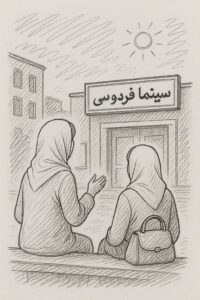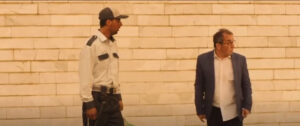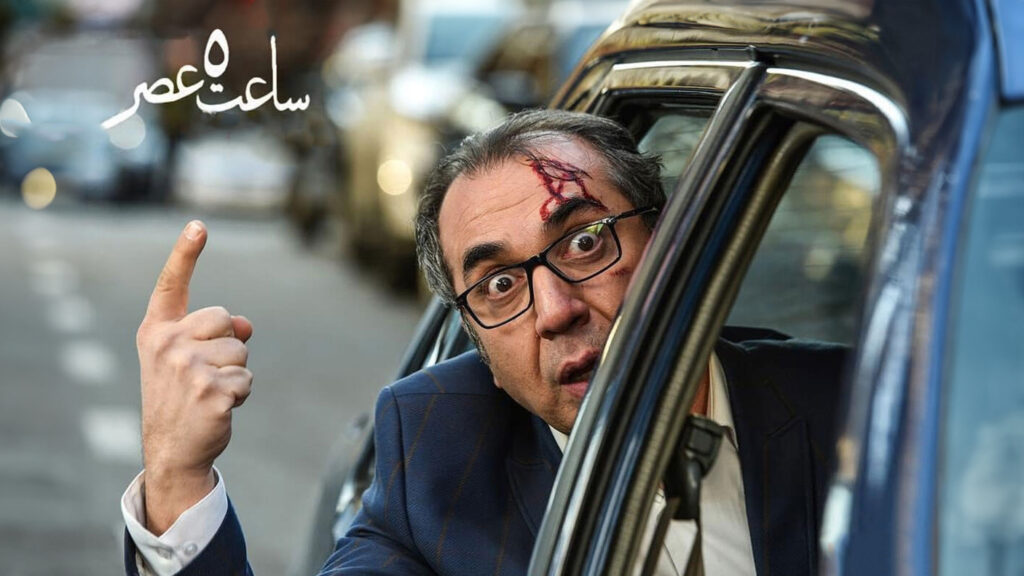The Simple Spectator — Note One
It’s not always true that when someone goes to the movies, they’ve truly gone to the movies. Often, people go to the cinema just to say they’ve gone somewhere. That “somewhere” could happen to be the cinema. Maybe because it’s dark and cool, the seats are comfortable, you can sneak in a snack, and meanwhile, some people up on the screen act out a story—maybe even a tragedy—for you, while others fill up the rows, side by side. Still, at the end of the day, it’s simply a place.

I once experienced this kind of just-being-somewhere at the cinema. One time, I finished work early—not because I was fast, but because something hadn’t happened—and I was left wondering how and where to spend the rest of my time. I called the first friend in my recent calls list. Golnaz came huffing and puffing from Amirabad, grumbling that she was just about to have lunch and had brought it with her but forgotten the spoons. The sun blazed hotter. The grilled fish in Golnaz’s bag had developed a very specific smell, and the two of us wandered the city in the early summer heat, unsure how to kill time.

As we were walking, our eyes suddenly caught the sign above a cinema near Ferdowsi Square. Like we had found a refuge, we ran across the street. Excited, we checked the screening schedule. As luck would have it, a film was starting in just a few minutes. And not just any film—it was “Five O’Clock in the Afternoon”, thankfully not as ridiculous as its title suggested. We had heard the buzz and seen bits of it here and there, but at that moment, the building was so empty it felt like we had come to a museum during off-hours. A projectionist—looking like he had just stepped out of Cinema Paradiso—emerged and asked, “Your tickets?” We showed him. The Paradiso man said, “Go on in, I’m about to start.”
Golnaz and I entered an empty theater. From panting under Tehran’s treeless summer sun, we now sat in the cinema’s cool air, with a container of food but no utensils. We sat in the middle of the room, center seats. A few rows behind us, the projectionist took a seat too. The doors to the hall stayed wide open. The film was about a lawyer who had to reach the bank by 5 PM to pay off his loan, or the bank would seize his house. For comic effect, he kept reporting every move to his wife abroad.
Golnaz and I, by the light of the screen, tried to pick out fish bones and eat with our hands before the fish spoiled in the heat. There was no side dish, no flavor—just big gulps, straight down the throat. Luckily, the film felt like each scene had been borrowed from the director’s many nightly TV series. It wasn’t surprising enough to make us regret focusing on the fish. It felt more like a retrospective of the famous director’s past work. The fish was big enough to last till halfway through the film, and eventually, we did watch the movie. With full stomachs, we occasionally whispered, “How much is left?”
We kept checking the time to see how cool it might be once we got out. We’d also have to wash our hands and faces somewhere. Every now and then the projectionist snored, then shifted in his seat and chuckled at the actors’ antics. We laughed at his laughter. At one point, a soldier told the main character in an empty alley, “Don’t stand here. Disperse. Disperse.” Golnaz and I laughed. It reminded us of our own countless dispersals. Our lives were more of a subject than the movie itself. We dealt with the chaos of the subway several times a day, and our paperwork with government offices never got done in just one visit.

Eventually, the movie ended and we walked out of the theater. Later on, the film would be officially listed as having grossed around 9 billion tomans. Golnaz and I had contributed to that number, but while others flocked to the film for the director’s fame, the private premiere, the press conference with attached cigarettes and VIP guests—we were among those who had seen the film quietly, almost secretly. Honestly, if that film hadn’t been made by Mehran Modiri, and if we hadn’t been at that exact place, at that exact time, in that exact cinema near Ferdowsi Square, we definitely wouldn’t have seen it.
What I remember most clearly is that by the end of the film, we learned one important thing: 5 o’clock in the afternoon is a great time for an appointment. Not 1:30 PM.



